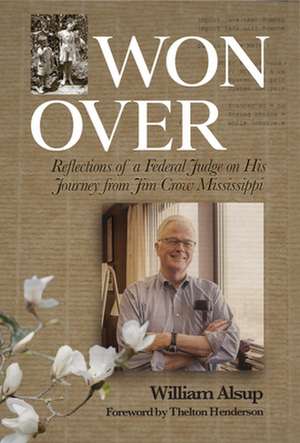Alsup, W: Won Over
Autor Thelton Hendersonen Limba Engleză Hardback – 28 feb 2019
Preț: 148.81 lei
Nou
Puncte Express: 223
Preț estimativ în valută:
28.48€ • 29.69$ • 23.71£
28.48€ • 29.69$ • 23.71£
Carte disponibilă
Livrare economică 16-30 decembrie
Preluare comenzi: 021 569.72.76
Specificații
ISBN-13: 9781588383426
ISBN-10: 1588383423
Pagini: 250
Dimensiuni: 157 x 229 x 23 mm
Greutate: 0.45 kg
Editura: University of New South Wales Press
ISBN-10: 1588383423
Pagini: 250
Dimensiuni: 157 x 229 x 23 mm
Greutate: 0.45 kg
Editura: University of New South Wales Press
Notă biografică
Judge William Alsup was born in Mississippi in 1945 and attended state-segregated white public schools until his junior year at Mississippi State University. The first African American student would enroll in the college that year, marking the author's first experience in an integrated school. Alsup was accepted to Harvard University in 1967, which led him to move from his home state for the first time. At Harvard, Alsup earned a law degree and a master's in public policy from the Kennedy School of Government. In 1971-1972, he clerked for U.S. Supreme Court Justice William O. Douglas, working on the abortion cases and the "Trees Have Standing" case. Alsup then returned to Mississippi, where he practiced civil rights law before eventually relocating to California as a trial lawyer. In 1999, he was nominated by President Bill Clinton and confirmed by the Senate as a United States District Judge in San Francisco. He has presided over a number of high-profile trials, with more than two hundred of his opinions being reprinted in official legal reporters. He is also the author of Such a Landscape! and Missing in the Minarets. Alsup is married with two children and two grandchildren.
